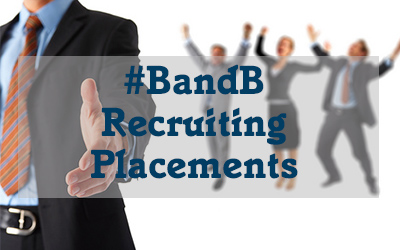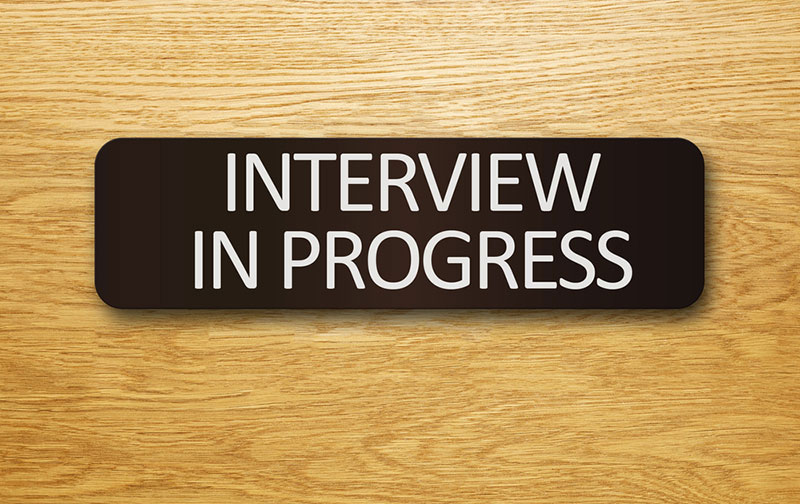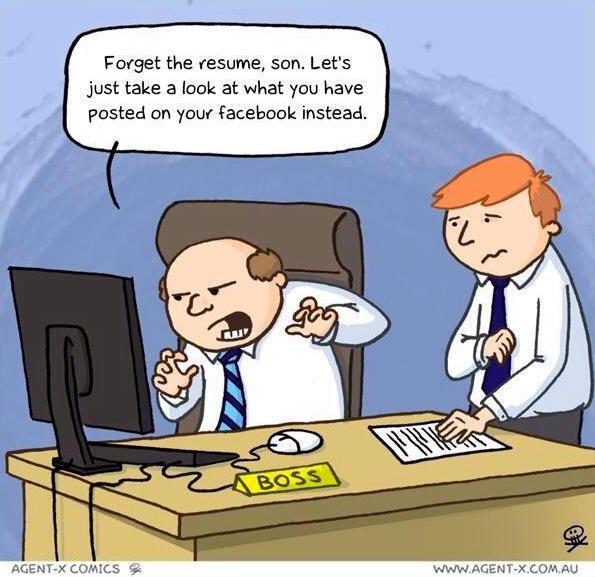Friday, May 17, 2019
by Bailey

We are seeking Marketing visionaries in the North and South!
We have Marketing Director opportunities in the Peekskill, NY & Birmingham, Alabama areas. Both are within a well-established B2C/B2B that is looking to double revenues over the next two years via acquisitions and organic efforts. The company targets residential and commercial markets with multi-year contacts. The parent company is global and pre-IPO. Both positions will tackle building revenues through various marketing and sourcing programs that sales can execute on and ensure marketing efforts translate into measurable financial results through increased leads and overall revenue growth.
Marketing Director, Peekskill, NY - Job ID: 12867
OPPORTUNITY: Be the Marketing Director for New York region and report to Regional President and partner across total enterprise. This is a recent acquisition…..business is profitable but has historically been more sales driven and parent company wants to make it more marketing driven. Accent is building revenues through various marketing and sourcing programs that sales can execute on. Build annual marketing budgets and financial plans and track progress of key performance indicators against those plans throughout the year. Ensure marketing efforts translate into measurable financial results through increased leads and overall revenue growth. Here is an overview of the role:
- Digital Marketing…Develop and implement digital marketing strategies and initiatives that drive direct business results, by connecting with consumer behavior to unlock new revenue opportunities. Develop digital marketing strategy and approach, inclusive of social media, SEO/SEM, email marketing and web development. Make decisions based on analytics and marketing trends, work with agency partners to develop and implement marketing strategies and campaigns for SEO, SEM, and mobile search to increase site traffic, visitor conversion rate
- Marketing Communications & Advertising…utilize and monitor promotions, advertising, media planning, consumer research, multi-tiered communications, traditional and social media tools and all other relevant marketing activities to reach various target audiences in the most effective manner. Plan, buy and test media (TV, radio, print, online) to support sales and marketing objectives
- E-Marketing…develop e-mail marketing strategies to increase customer acquisition and retention, maximize customer lifetime value, and grow revenue
- New Products & Marketing Programs…partner with cross-functional team members to strategize and plan commercialization of new products and services as well as targeted marketing programs.
- Rebranding & Acquisitions…contribute on the integration of customers and markets from acquisitions; partner on and lead the rebranding efforts
- Partnering with Call Center…partner on communications with existing customers as well as the onboarding of new customers; drive qualified leads to call center and direct sales
- Budget, Reporting & KPIs…develop annual marketing budget; forecast and analyze marketing metrics and provide short- and long-term, data-driven recommendations to optimize campaign performance, improve marketing/media effectiveness and reach sales and marketing goals. Provide regular reporting (weekly, monthly) on insights, analytics, and results of all e-commerce marketing efforts and site metrics/KPI
REQUIREMENTS: BS/BA in Marketing or related field required; MBA a plus. Seek 7+ years of business experience that includes in-depth knowledge of digital marketing and e-commerce as well as traditional marketing methods (TV, radio, print). Must have strong data-driven marketing analysis and strategy development skills, combined with high level of creativity and concept development ability. Must have excellent of Google Analytics and SEO tools. Type A personality best. Experience within both consumer and commercial markets is required.
Marketing Director, Birmingham, AL - Job ID: 12886
OPPORTUNITY: Report to Platform President and partner across total enterprise. Parent company is global and pre-IPO.Birmingham subsidiary will be the headquarters for a business platform that is multi-branch sales & service operation that will expand in Alabama, Mississippi, and Tennessee. Business is profitable but has historically been more sales driven and parent company wants to make it more marketing driven. Accent is building revenues through various marketing and sourcing programs that sales can execute on. Build annual marketing budgets and financial plans and track progress of key performance indicators against those plans. Ensure marketing efforts translate into measurable financial results through increased leads and overall revenue growth. Here is an overview of the role:
- Digital Marketing…Develop and implement digital marketing strategies and initiatives that drive direct business results, by connecting with consumer behavior to unlock new revenue opportunities. Develop digital marketing strategy and approach, inclusive of social media, SEO/SEM, email marketing and web development. Make decisions based on analytics and marketing trends, work with agency partners to develop and implement marketing strategies and campaigns for SEO, SEM, and mobile search to increase site traffic, visitor conversion rate
- E-Marketing…develop e-mail marketing strategies to increase customer acquisition and retention, maximize customer lifetime value, and grow revenues.
- New Products & Marketing Programs…partner with cross-functional team members to strategize and plan commercialization of new products and services as well as targeted marketing programs
- Marketing Communications & Advertising…utilize and monitor promotions, advertising, media planning, consumer research, multi-tiered communications, traditional and social media tools and all other relevant marketing activities to reach various target audiences in the most effective manner. Plan, buy and test media (TV, radio, print, online) to support sales and marketing objectives
- Rebranding & Acquisitions…contribute on the integration of customers and markets from acquisitions; partner on and lead the rebranding efforts
- Budget, Reporting & KPIs…develop annual marketing budget; forecast and analyze marketing metrics and provide short- and long-term, data-driven recommendations to optimize campaign performance, improve marketing/media effectiveness and reach sales and marketing goals. Provide regular reporting (weekly, monthly) on insights, analytics, and results of all e-commerce marketing efforts and site metrics/KPI
REQUIREMENTS: BS/BA in Marketing or related field required; MBA a plus. Seek 7+ years of business experience that includes in-depth knowledge of digital marketing and e-commerce as well as traditional marketing methods (TV, radio, print). Must have strong data-driven marketing analysis and strategy development skills, combined with high level of creativity and concept development ability. Must have excellent
Google Analytics and SEO tools. Type A personality best. Experience within both consumer and commercial markets is required. No relocations considered




 Top
Top
Monday, May 13, 2019
by Bailey
Every business has a uniqueness due to culture, organization structure, tenets, practices, and goals. Competition is everywhere, opportunities for growth abound, challenges are multiple, and technology is forever changing. A key to business success is improving productivity with less effort and resources. People are the backbone of all organizations and bad hires cost a business financially, productively, and emotionally.
Roles do not always have equal value in parallel businesses. There are three levels of value with a lot of degrees of separation: strategic, tactical, and maintenance. Competition for talent has increased and hiring effectively means both correctly and quickly.
Here are a few suggestions when recruiting, evaluating, and hiring a new employee:
- Identify a small team of decision makers: Less people involved is quicker and more efficient. Often companies preach being proactive, forward thinking, and customer focused and then effuse a hiring process that is cumbersome and too lengthy.
- Develop a time line: Assume that the best candidates are being recruited by other companies and will not be available for long. Best practices means being efficient. Establish a time line for first and second interviews to move through the evaluation process as quickly as possible. Try avoiding more than a 2 step process. This is a positive message to all parties.
- Create a scorecard: The hiring team must all be on the same page regarding responsibilities, value of role, ability to contribute, and first year expectations. Go beyond the job description and create a score sheet of core competencies that include knowledge, experience, and soft skills that are essential. Not all items on the score sheet are equal. Identify how the team is going to evaluate items on the score card. Meet after interview and discuss scoring.
- Ask interesting questions: Behavioral interview is quite common and viewed to be 50-60% predictive of future performance. Be premeditated and create questions that are aligned to the score card. Ensure that hard and soft skills, knowledge, experience, and acumen are appropriately evaluated. Believe it or not, there are hiring authorities that do not ask questions, end up talking too much, and then wonder why the new hire did not meet expectations.
- Be prepared to sell: All candidates need to feel positive following the interview process even if they are not the candidate of choice. If a candidate warrants future interest, leadership needs to sell the opportunity, culture, synergies, business future and any other positive insight. This is the “pull” factor and essential to securing talent.
B&B has a proven track record for streamlining the hiring process and landing the right talent that will go the distance for our clients. A partnership with a B&B recruiter ensures success for all parties.




 Top
Top
Wednesday, May 8, 2019
by Bailey
The resume and cover letter are the first impressions for a new employment opportunity. The resume is an opportunity to showcase your skills and experience for the role and company that you are interested in.
There are two types of readers: (1) the decision makers and they rarely will read cover letters; and (2) the non-decision makers and they might read every word submitted. Resumes should be composed for decision makers. 90+% of resumes are boring and fail to communicate the appropriate information for the targeted audience.
Here are the most common mistakes on resumes:
- Wrote the resume for yourself and not the reader…..most people ended up writing a career autobiography rather than a marketing presentation of your abilities for that specific opportunity. Resumes should be tailored.
- Business Parallels…..every job is a reflection of the business model and culture. Most forget to describe the business model (e.g. product/services, markets channels served). Any parallels in the business model of recent employers to the business that you are applying for is a big advantage.
- Lack of Contributions & Accomplishments….too many resumes are bland, more duties and responsibilities focused….if you have supported revenue growth, improved business processes, partnered on cost savings, and/or teamed on change management, then you need to have that in your resume and describe the action steps and not just the result.
- Personality….most resumes have no personality, yet soft skills are always valued at 50% or greater on any interview. Having a “Professional Summary” at the top of the resume is an opportunity to use adjectives that describe your personality as well emphasize those skills and business model parallels for the opportunity that you are applying for.
- Resume Content…..the last seven years is the most valued and appropriate experience. Resumes should start off with a Professional Summary and then most recent or current employer. Promotion are important. 75-80% of the content on the resume should be contained in the last 7 years and explained well. Resumes should not exceed two pages…you are marketing skills and appropriate experience….you are not writing an essay or a book.




 Top
Top
Friday, May 3, 2019
by julie

Here are some examples of successful searches completed by the B&B team:
Assistant Treasurer, Global Technology Products Leader
Audit Director, Global Building Products Manufacturer
Automation Engineer, PE Funded Waste Treatment Industry
AVP Financial Reporting, Investment Management Firm
Board Administrator, Utility
Business Analysis Leader, Investment Management Software
Business Finance Manager, Medical Products Industry
CEO, Non-Profit Healthcare Organization
CFO, National Commercial Bank
CFO, PE backed Precision Products Industry
Controller, Privately-Held Chemical Industry
Customer Insights Director, OTC Consumer Products Leader
Demand Planner, Safety Testing Leader
Digital Marketing, Senior Manager, Healthcare Products Distributor
Divisional CFO, Specialty Chemicals Leader
Domestic Tax Manager, Global Holding Company
Engineering Project Manager, Tier 1 Automotive Supplier
General Manager, Capital Equipment Distributor
Human Resources Director, Energy Products Manufacturer
Human Resources Leader, Customer Packaging Industry
Human Resources Manager, CPA Firm
Human Resources, Senior Manager, Consumer Products Distributor
Marketing Analyst, B2B Software Management Firm
Marketing Manager, Healthcare Holding Company
Marketing Director, PE Financed Medical Products Mfg
IT Director, Automotive Components Industry
IT Infrastructure Engineer, Security Products Leader
Operations Controller, Precision Products Industry
Operations Manager, Power Management Company
Product Manager, Building Product Industry
Purchasing Manager, Electronic Controls Manufacturer
Quality Engineer, PE Finance Metal Stamper
Quality Manager, Healthcare Products Industry
Quality Director, Aerospace Products Manufacturer
Sales Administrator, Capital Equipment Manufacturer
Sales Director, Healthcare Products Marketer
Sales Engineer, Precision Products Manufacturer
Sales Operations Director, PE Infused Technology Products
Sales Support Manager, Capital Equipment Manufacturer
Strategy Associate, B2B Financial Services
Supply Chain Manager, Adhesive Products Manufacturer
Tax, Senior Manager, Regional CPA Firm
VP Finance, PE funded Metal Forming Industry
VP Human Resources, Healthcare Services Organization
VP Manufacturing, Metal Coatings Industry
VP Sales, Laboratory Equipment Manufacturer




 Top
Top
Wednesday, May 1, 2019
by Bailey

We found an article interesting from Qz.com that detailed some of the most uncommon interview questions that CEOs have admitted to asking. Here’s what they said:
“Would you rather be respected or feared?”
This speaks volumes about your leadership style and how it would fit the company in question.
“Why are you here today?”
This can give a gauge on how self-absorbed a candidate is – are they committed to contributing to the organization, or are they just in it for the personal benefit? CEO Gordon Wilson says he looks for a 75-25% split between the two.
“What’s your biggest dream in life?”
No answer is too ambitious, according to Zhang Xin, co-founder and CEO of SOHO China.
“How were you treated?”
This question is directed towards the drivers and receptionists who came into contact with a candidate on the way to their interview, allowing Rick Goings, CEO of Tupperware, to see how candidates act in real life.
“What is your favorite property in Monopoly, and why?”
This is a great way to hear about how candidates think of risks and rewards, according to Ken Moelis, founder and CEO of Moelis & CO.
“Tell me about when you failed.”
CEOS love to dissect past failures, which can allow them to pinpoint resilience, creativity, and humility in candidates
“Who did you want to be when you were seven or eight?”
Barbara Byrne, vice chairman of investment banking at Barclays, uses the “airplane test” on her interviewees, where she tests if she can sit on a plane from New York to LA with a candidate and not be “bored out of her mind.” Questions like these are common on these long-haul flights.
The wine list test
Charles Phillips, CEO of Infor, takes a candidate out to dinner with some senior execs in place of a traditional interview. Here, he is able to see how they handle themselves in an unstructured environment by giving them the wine list – the person has to convince the group that they know a lot about wine, pretend that they do, pick the most expensive bottle, or ask for help. How they choose and how successful they are in explaining their choice is part of the test.
Walk the talk
Atul Kunwar, president and CTO of Tech Mahindra, goes deep into candidates’ hobbies. When one candidate said he was a keen singer, Kunwar asked him to sing in front of a panel of senior executives.
Though it’s unlikely you’ll ever be faced with many of these questions, it’s certainly interesting to think about how you would respond to them.
Source: https://qz.com/608398/be-prepared-we-gotasked-10-ceos-to-tellgive-us-their-killer-interview-questions/




 Top
Top





